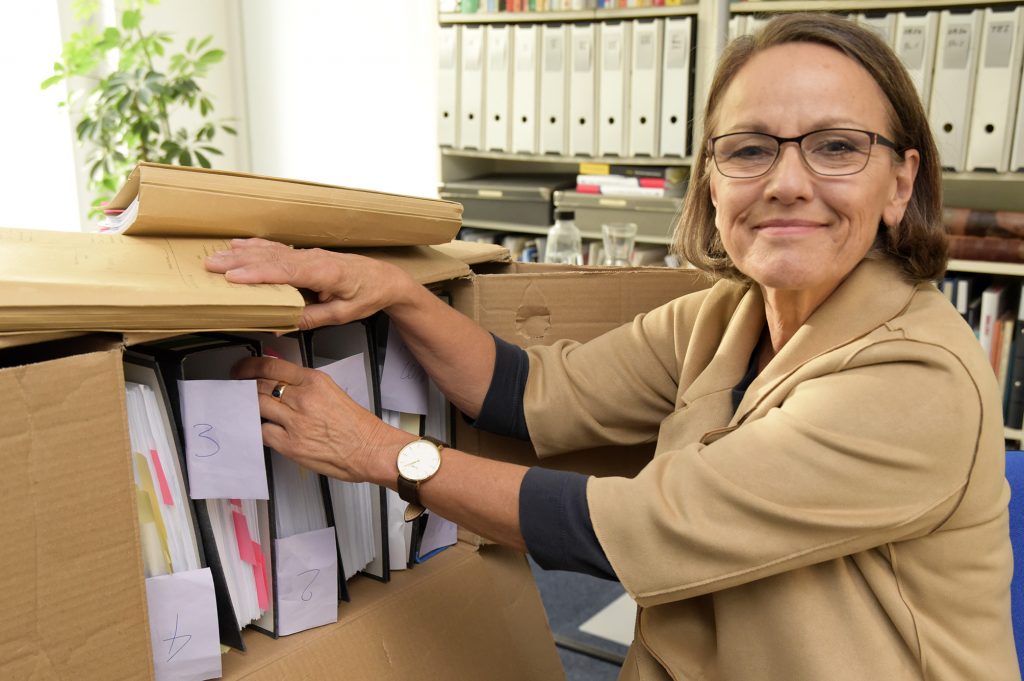Crime Scene Sentence Structure – on the Trail of the Perpetrators
Startseite » Crime Scene Sentence Structure – on the Trail of the Perpetrators
Crime Scene Sentence Structure – on the Trail of the Perpetrators
Convicting perpetrators through text comparisons: Isabelle Thormann is a guest in the latest episode of the podcast “Forsch- Wissenschaft im Gespräch.” She is the only sworn expert for forensic linguistics in Germany and is called in to help solve criminal offenses.

Isabelle Thormann’s field of work is wide-ranging. As a forensic linguist, she is called in for criminal offenses in which she convicts the perpetrators by means of text analysis. The criminal offenses can range from threats to inheritance hunting. For example: A threatening letter arrives at a chemical factory. If the blackmailer’s demands are not met, he threatens to blow up the chemical factory. Six people, employees of the company, are under suspicion. This scenario is realistic because they have access to the necessary materials. Under great time pressure, Thormann is to find out whether the person sought is actually among the accused or whether none of the suspects committed the crime. How exactly does Isabelle Thormann work?
The Fingerprint in the Text?
Thormann explains that our language is not comparable to our fingerprint, but there are linguistic peculiarities, so-called idiolects, that distinguish every human being. In contrast, the typeface or voice of the perpetrators plays no role in her work, nor does the paper or ink on which extortions are frequently communicated. Thormann identifies the wanted persons solely through qualitative, structure-observing or quantitative, statistics-based analyses. Both methods require as many text samples as possible in order to achieve reliable results.
Who You Gonna Call?
Isabelle Thormann is usually commissioned by three instances: Either private individuals or companies, as in the case of the chemical factory, or law firms or judges. However, her advice is not only sought in the case of criminal offenses, but also in the interpretation of contracts. The fine nuance between linguistics and legal matters plays a major role here, as she emphasizes. You can find out whether the chemical factory was actually blown up and whether a perpetrator could be identified in the new episode of Forsch!
The podcast “Forsch! – Science in Interview” is a cooperation between ForschungRegion Braunschweig and Braunschweiger Zeitung. The moderators from ForschungRegion and Braunschweiger Zeitung speak with regional stakeholders about their research, their person – and about current social, political, and ethical questions and debates.
Listen directly here or stream on Spotify, Apple Podcasts or Deezer.
